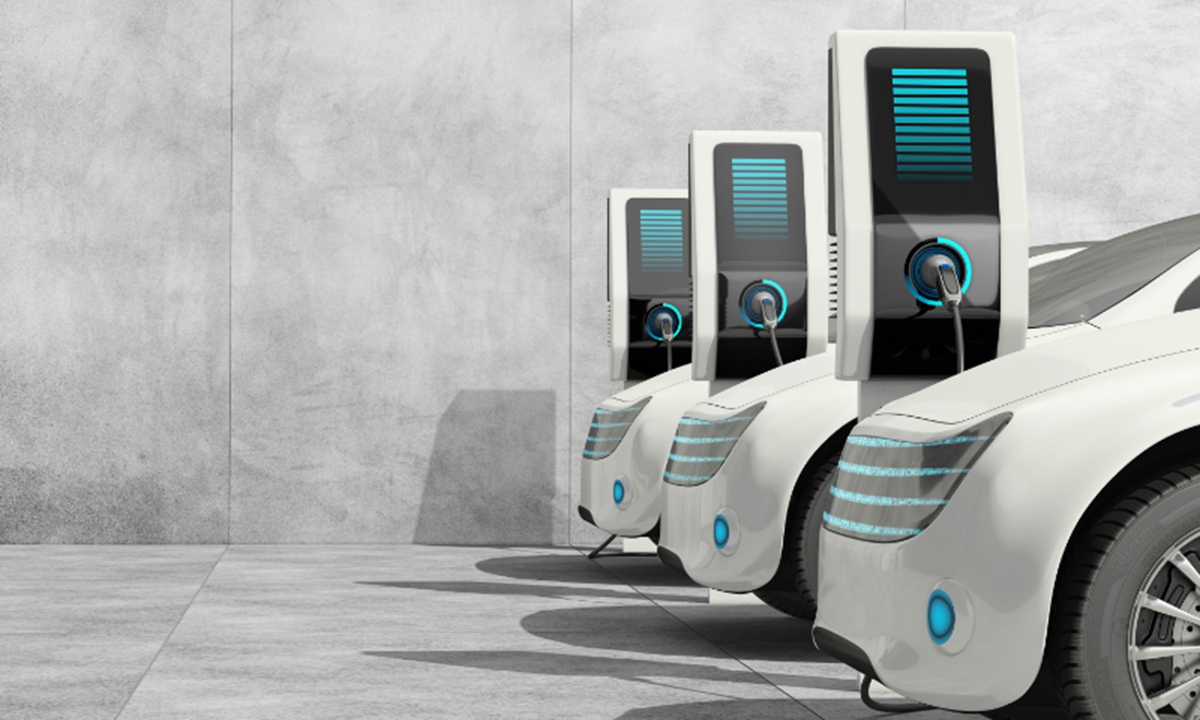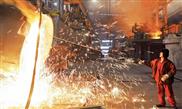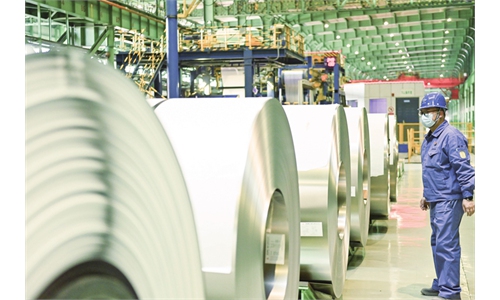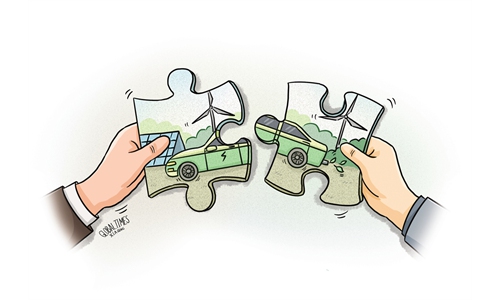
Electric vehicles are being charged. Illustration: VCG
Recently, the EU has been reportedly mulling fresh moves to launch an anti-subsidy investigation into China's steel and wind turbines on the heels of formal launch of anti-subsidy probe into Chinese electric vehicles (EVs).What deserves particular attention is that Brussels' planned anti-subsidy investigation into China's steel is reported to serve as a part of its pact with the US. The EU plans to announce the probe when US President Joe Biden hosts European Commission President Ursula von der Leyen and European Council President Charles Michel on October 20, according to the Financial Times.
China has expressed strong dissatisfaction and opposition to the EU's launch of an anti-subsidy investigation into the Chinese EVs without sufficient evidence, and has given stern warning against the EU's reported plan to launch more anti-subsidy investigations into other Chinese industries.
If the European side really launches the anti-subsidy investigation targeting China's steel industry as part of the agreement with the US, it will be a politicization of trade issue rather than a normal industry investigation. Such actions in the political purposes of catering to Washington will not only provoke strong backlash from China, but also face strong opposition from the European business community.
In fact, there are already divisions within the EU regarding the anti-subsidy investigations against Chinas EV industry. Before launching investigations into other Chinese industries, EU decision-makers need to carefully consider the potential destructive effects to mutually beneficial trade cooperation, especially given the current headwinds facing the European economy.
The EU's anti-subsidy investigation into China's EV sector lacks a factual basis. As a strong product in China's exports, the competitive advantage of EVs is built by Chinese companies in the complex international market competition, representing the development level and international competitiveness of China's manufacturing. At a time when global trade growth is weak and green emission reduction has become a focus of global development, the EU's actions go against the trend.
According to the anti-subsidy investigation procedure, the EU first needs to prove whether Chinese companies exporting EVs receive subsidies. Secondly, they need to demonstrate whether these subsidies cause harm to EU companies in the same industry.
During this process, Chinese companies should take proactive actions to protect their legitimate rights and interests, with industry associations taking the lead. They should be organized to collect strong evidence to refute the allegations, and present a substantial amount of facts to prove that the EU's anti-subsidy investigation is unfounded.
Meanwhile, Chinese companies should strengthen communication and contact with relevant EU companies, jointly respond to the EU's anti-subsidy investigation, and maintain a good cooperative momentum with their partners in EU.
The economic and trade cooperation between China and Europe is actually a win-win partnership, and beneficial for the development of their respective economies and trade. The formal announcement by the European side to initiate an anti-subsidy investigation into Chinese EVs without sufficient evidence has already damaged the bilateral economic and trade relationship.
If the EU insists on choosing more trade restrictive measures from a political confrontation perspective, it will undoubtedly disrupt the existing cooperative structure with China, which is detrimental to both sides.
The author is a vice chairman of the China Society for World Trade Organization Studies in Beijing. bizopinion@globaltimes.com.cn



